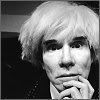By surfing along the sites of Microsoft and Mozilla, I slowly began to realize that each site was a bit different from the last. For example, they use the technique of mapping and architecture differently.
As Matt pointed out to our group, Mozilla has links from win its site that actually links the user outside the realms of Mozilla. Some particular links actually lead you to external links that give reviews (all positive of course) of the site, but (as this connects to the relative centrality) each of those external links have a link at the bottom of each article that links back to Mozilla.
But with Microsoft, everything is centered on and around the site. By trying the experiment of seeing if one could truly find the website of Mozilla in the search engine, it was a very difficult find (in which I didn’t, uh, find). Almost every article that appeared was to be found within the Microsoft site. The site lacked a relative centrality.
Also with architecture, both sites differed.
Mozilla appeared to have a more movable atmosphere. The user got to travel outside the site and move freely. You can move unrestricted around Microsoft, but everything is contained around the site itself. It gave of a more static feel.
Mozilla also, at least in my opinion had a more user friendly interaction process than Microsoft. It had web forums one could visit and get almost instant feedback if you ran into a technical issue. Microsoft, even though it had support, made the user feel as though they were traveling down the road less traveled.
Both sites appeared to have their moments of publicity when they went users to register if wanting to use their web forums. The user is then identified as an anonymous individual, but now has a name attached to them.
Once more, both sites remained completely visible with the aspect of showing all what they offered up front on their respected homepages. They also had enclosure.

